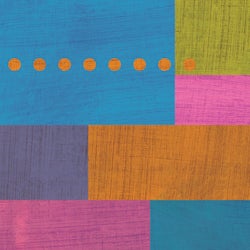During the past year, Janice Jhang and Andrea Luviano, Educational Innovation Scholars at CHDS, contributed to new instructional models and pedagogical approaches to teach decision science. Educational Innovation Scholars are supported by the Alan Colowick Innovation Fund.
Educational Innovation Scholars contributed to key initiatives with faculty. These include the development of open-access decision science teaching materials that can be applied to existing high school STEM curricula. Scholars also took part in the development of self-paced online learning materials for advanced students and professionals in public health and medicine who have not had health decision science exposure within their graduate school training. These efforts prioritize professionals in low and middle-income country settings.
Luviano’s work focused on utility elicitation and the value of health, resource identification, classification of topics by suitability for learners’ needs and comprehension, and the design of pilot exercises for diverse learner levels.
Jhang’s work focused on the module on diagnostic testing and Bayes’ theorem. Jhang used data on diagnostics for SARS-CoV-2 to create case-based exercises, in-class activities, and interactive assignments. Jhang’s efforts dovetail with the open-access high-school course collaboration on Outbreak Science between CHDS, the Global Health Education and Learning Incubator at Harvard University (GHELI), and the Broad Institute of MIT and Harvard, with support from the Gordon and Betty Moore Foundation.
More about the Educational Innovation Scholars
Andrea Luviano, MD, MPH
Luviano is a PhD student in health policy, concentrating in Decision Science at the Harvard T.H. Chan School of Public Health. Born and raised in Mexico, she holds an MD and an MPH. Following medical school, she worked at the Mexican Social Security Institute on programs to improve quality of care, where she experienced first-hand the challenges related to designing effective, equitable, cost-effective health system strategies that align with people’s preferences. Luviano works on projects related to gastric cancer, colorectal cancer, cardiovascular diseases, and health years in total (HYT). She is interested in decision science methods that can address the ethical, distributional, and equity concerns of the classical cost-effectiveness analysis and the quality-adjusted life years (QALYs), like distributional cost-effectiveness analysis and the HYT.
Learn more about Luviano: Interview with Educational Innovation Scholar Andrea Luviano
Janice Jhang, BS
Janice Jhang is an MPH student in Health Policy at the Harvard T.H. Chan School of Public Health and holds a BS in Policy Analysis and Management from Cornell University. Prior to pursuing her MPH, she was a consultant at IQVIA (QuintilesIMS), where she led the design of quantitative analyses to address a wide range of policy and strategy questions for pharmaceutical and biotech companies. During this experience of working extensively with data on disparities, her long-standing interest in economic evaluation was coupled with understanding the equity impact of health policies. Jhang is interested in methods to incorporate distributional effects into health economic evaluation, the therapeutic and diagnostic landscape of Alzheimer’s Disease, and all things pharmaceutical policy.
Learn more about Jhang: Interview with Educational Innovation Scholar Janice Jhang
More about the Alan Colowick Innovation Fund
The Alan Colowick Innovation Fund supports CHDS to pursue high-value opportunities and initiatives that align with its core mission. Colowick was inspired to incorporate Decision Science into his practice of medicine and subsequent roles in the pharmaceutical and biotech industries by a course he took with CHDS’ Milton Weinstein during his MPH training at the Harvard T.H. Chan School of Public Health.
The Innovation Fund supports Educational Innovation Scholars who work with faculty to broaden the scope and reach of educational efforts to develop novel instructional models, short-form multimedia content, and case-based learning experiences. Last year (2022), Scholars worked to develop case-based tutorials that help students learn how to use the open-access modeling software Amua. The case-based tutorials and accompanying resources are available in the CHDS open-access resource repository.
Learn more: Read about Colowick’s gift in the Harvard Public Health Magazine: Alan Colowick Innovation Fund
Related news: CHDS and Broad Institute on Outbreak Science
Related news: CHDS Welcomes Educational Innovation Scholars
